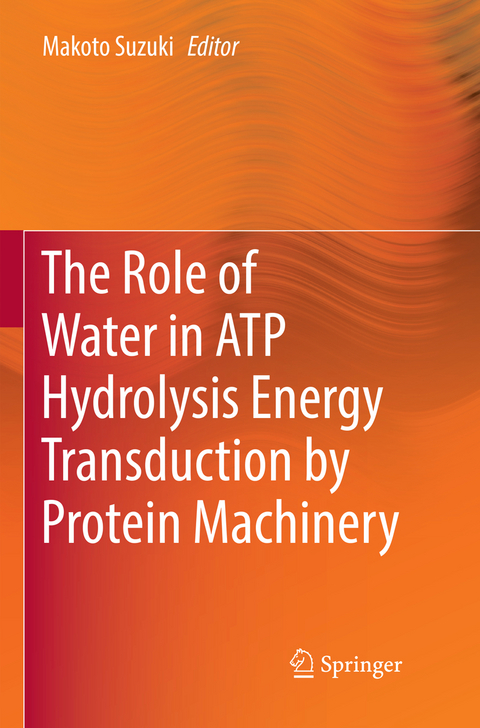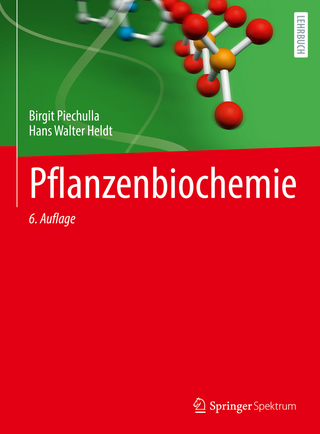
The Role of Water in ATP Hydrolysis Energy Transduction by Protein Machinery
Springer Verlag, Singapore
978-981-13-4157-1 (ISBN)
Makoto Suzuki graduated from Yamagata University in 1974 and received his Doctor of Engineering degree from Tohoku University in 1981. Following his studies, he worked at the Mechanical Engineering Laboratory (MEL/AIST) for eleven years, and at the National Institute for Advanced Interdisciplinary Research (NAIR/AIST) for five years. He moved from NAIR to Tohoku University as a professor in 1996. Using his improved-high-precision system of dielectric spectroscopy, he discovered hyper-mobile water (HMW) in the hydration layer of actin filaments, one of the contractile muscle proteins, in 2003. He organized "Water Plays the Main Role in ATP Energy Transfer" (2008-2012) as an Innovative Scientific Research Area, an interdisciplinary project focused on the energetics of protein machineries.
Part I: Basis of ATP Hydrolysis Reaction.- 1. Free Energy Analyses for the ATP Hydrolysis in Aqueous Solution by Large-Scale QM/MM Simulations Combined with a Theory of Solutions.- 2. Role of Metal Ion Binding and Protonation in ATP Hydrolysis Energetics.- 3. Spatial Distribution of Ionic Hydration Energy and Hyper-mobile Water.- 4. Theoretical studies of strong attractive interaction between macro-anions mediated by multivalent metal cations and related association behavior: Effective interaction between ATP binding proteins can be regulated by hydrolysis.- 5. Statistical mechanical integral equation approach to reveal the solvation effect on hydrolysis free energy of ATP and its analogue.- 6. A Solvent Model of Nucleotide–protein interaction - Partition coefficients of phosphates in solvent-water mixtures- .- Part II: Basis of Protein-Ligand and Protein-Protein Interactions.- 7. Energetics of myosin-ATP hydrolysis by calorimetry.- 8. Orchestrated electrostatic interactions among myosin, actin, ATP, and water.- 9. Protonation/deprotonation of proteins by neutron diffraction structure analysis.- 10. All-atom analysis of free energy of protein solvation through molecular simulation and solution theory.- 11. Uni-directional propagation of structural changes in actin filaments.- 12. Functional mechanisms of ABC transporters as revealed by molecular simulations.- 13. Statistical thermodynamics on the binding of biomolecules.- Part III: Functioning Mechanisms of Protein Machinery.- 14. Ratchet model of motor proteins and its energetics.- 15. Single Molecule Analysis of Actomyosin in the Presence of Osmolyte.- 16. Novel intermolecular surface force unveils the driving force of actomyosin system.- 17. Extremophilic enzymes related to energy conversion.- 18. Functioning mechanism of ATP-driven proteins inferred on the basis of water-entropy effect.- 19. Controlling the motility of ATP-driven molecular motors using high hydrostatic pressure.- 20. Modulation of the sliding movement of myosin-driven actin filaments associated with their distortion: The effect of ATP, ADP, and inorganic phosphate.
| Erscheinungsdatum | 30.06.2019 |
|---|---|
| Zusatzinfo | 100 Illustrations, color; 24 Illustrations, black and white; IX, 353 p. 124 illus., 100 illus. in color. |
| Verlagsort | Singapore |
| Sprache | englisch |
| Maße | 155 x 235 mm |
| Themenwelt | Naturwissenschaften ► Biologie ► Biochemie |
| Naturwissenschaften ► Chemie ► Physikalische Chemie | |
| Naturwissenschaften ► Physik / Astronomie ► Angewandte Physik | |
| Schlagworte | ATP hydrolysis • biological energetics • hydration free energy • motor mechanism • protein machinery |
| ISBN-10 | 981-13-4157-5 / 9811341575 |
| ISBN-13 | 978-981-13-4157-1 / 9789811341571 |
| Zustand | Neuware |
| Haben Sie eine Frage zum Produkt? |
aus dem Bereich


